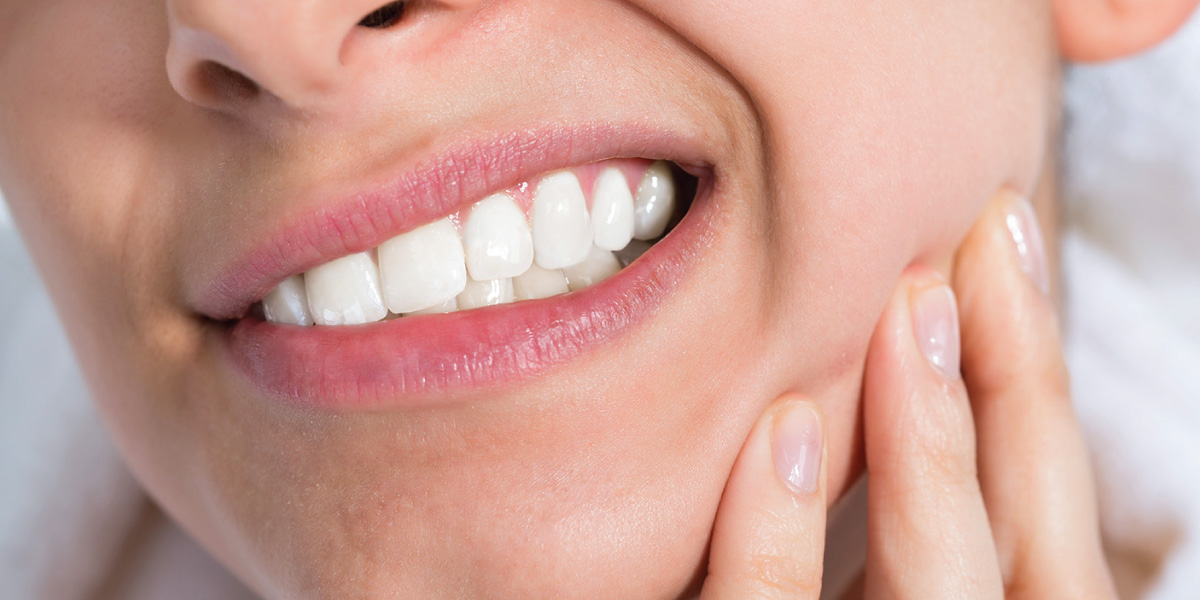
Overview
Have you ever felt pain or discomfort after eating a scoop of hot soup or a piece of ice cream? If that’s the case, you’re not alone. While tooth pain produced by hot or cold foods may indicate the presence of a cavity, it is also prevalent in persons with sensitive teeth.
Tooth sensitivity, also known as “dentin hypersensitivity,” is pain or discomfort in the teeth caused by particular stimuli, such as hot or cold temperatures.
It can be a momentary or long-term issue, and it can affect one tooth, several teeth, or all of a person’s teeth. It can be caused by a variety of factors, but most cases of sensitive teeth can be resolved with a simple change in your oral hygiene routine.
As a result of specific triggers, people with sensitive teeth may experience pain or discomfort. This discomfort may be felt at the roots of the impacted teeth. The following are some of the most prevalent triggers:
- hot foods and beverages
- cold foods and beverages
- cold air
- sweet foods and beverages
- acidic foods and beverages
- cold water, especially during routine dental cleanings
- brushing or flossing teeth
- alcohol-based mouth rinses
What causes sensitive teeth?
Because their enamel is thinner, some people have more sensitive teeth than others. The enamel is the protective outer covering of the tooth. The enamel on a tooth can be worn down in several ways, including:
- Brushing your teeth too hard
- using a hard toothbrush
- grinding your teeth at night
- regularly eating or drinking acidic foods and beverages
Make an appointment with your dentist if you’re experiencing tooth sensitivity for the first time. Using our Healthline FindCare service, you can schedule an appointment with a dentist in your region. They can examine the condition of your teeth and search for issues such as cavities, loose fillings, or receding gums that could be causing the sensitivity.
This is something your dentist can accomplish during a basic dental cleaning. They’ll clean your teeth and examine you visually. They may use dental instruments to feel your teeth for sensitivity, and they may also order an X-ray to rule out causes such as cavities.
How is tooth sensitivity treated?
You can try over-the-counter dental remedies if your tooth sensitivity is minor.
Select toothpaste that is specifically formulated for sensitive teeth. This toothpaste will not have any irritating components and may contain desensitizing compounds that help prevent pain from reaching the tooth’s nerve.
When it comes to mouthwash, alcohol-free mouthwash is preferable because it is less irritating to sensitive teeth.
Brushing more softly and with softer toothbrushes can also help. Soft toothbrushes will be clearly marked.
These cures usually require multiple applications to be effective. Within a week, you should see a difference.
If non-prescription toothpaste and mouthwash don’t work, talk to your dentist about prescription toothpaste and mouthwash. In-office fluoride gel or prescription-grade desensitizing medications may also be used. These can assist to safeguard your teeth by strengthening the enamel.
What’s the outlook for tooth sensitivity?
Talk to your dentist about a solution if your tooth sensitivity is making it difficult to eat. Over-the-counter toothpaste and mouthwashes for sensitive teeth are widely available.
If these don’t work, see your dentist about getting prescription toothpaste and mouthwash. If you’re experiencing cavity or potentiation symptoms, you should also schedule an appointment with your dentist.
